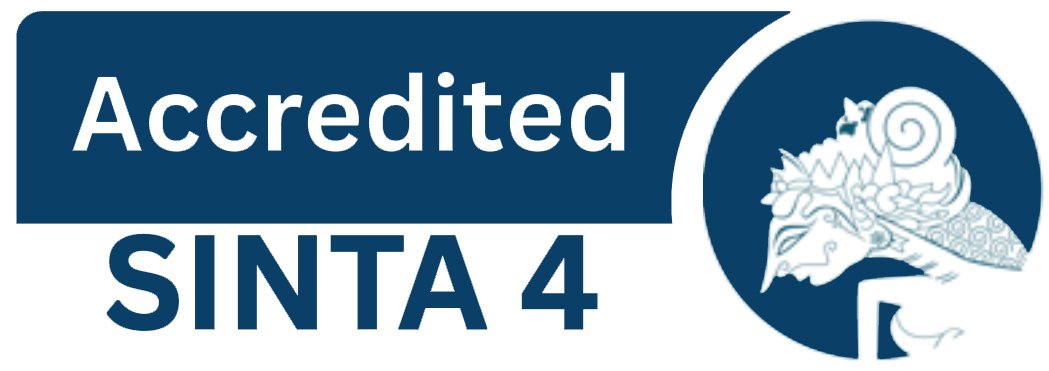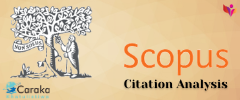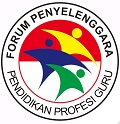Increasing Interest in Learning Mathematics Through the Technological Pedagogical and Content Knowledge (TPACK) Approach in Grade II Elementary School Students
DOI:
https://doi.org/10.22460/jpp.v4i1.27241Keywords:
TPACK, Learning Interest, Mathematics, Elementary School StudentsAbstract
The problem addressed in this research is the low interest in mathematics learning among second-grade students at SDN Demangan, which is attributed to conventional teaching methods and the minimal use of technology in the learning process. The purpose of this study is to enhance students' interest in mathematics by implementing the Technological, Pedagogical, and Content Knowledge (TPACK) approach. This study employed Classroom Action Research (CAR) using the spiral model developed by Kemmis and McTaggart, which includes planning, action, observation, and reflection stages. The research was conducted in two cycles during the even semester of the 2024/2025 academic year. Data were collected using observation and a learning interest questionnaire and analyzed using the Guttman Scale in percentage form. The results indicated a significant improvement in students' learning interest: in the pre-cycle stage, student interest was at 45% (categorized as sufficient), increased to 70% in the first cycle (high category), and reached 87% in the second cycle (very high category). The application of the TPACK approach successfully created a more engaging and enjoyable learning environment, encouraging student participation. This study concludes that the TPACK approach is effective in increasing the interest of second-grade students in mathematics learning at Demangan Elementary School, Kudus.
References
Akbar, K., dkk. (2024). Penerapan model problem based learning berbantuan komik digital untuk meningkatkan pemahaman konsep matematis siswa pada materi perkalian pecahan di kelas v sekolah dasar. Jurnal Profesi Pendidikan (JPP), 3(2). https://journal.ikipsiliwangi.ac.id/index.php/jpp/article/view/25432/7069
Arikunto, S. (2021). Penelitian Tindakan Kelas Edisi Revisi. Jakarta: Bumi Aksara.
Asih, R. M., & Muslim, A. H. (2023). Pengembangan media pembelajaran ular tangga berbasis kearifan lokal pada tema 3 subtema 2 pembelajaran 4 di kelas V SD Negeri 1 Dukuhwaluh. Jurnal Jendela Pendidikan, 3(03). https://ejournal.jendelaedukasi.id/index.php/JJP/article/view/557/167
Ermawati, D., & Riswari, L. A. (2020). Pengaruh pendekatan pmri terhadap kemampuan pemecahan masalah matematis siswa SD. JPD: Jurnal Pendidikan Dasar. https://eprints.umk.ac.id/12819/9/ARTIKEL%20PMRI%20PEMAHAMAN%20KONSEP%20%28DIANA%20ERMAWATI%29.pdf
Ermawati, D., & Zuliana, E. (2020). Implementation of open-ended problems on mathematical problem-solving skill of elementary school students. JPSD, 6(2). https://jurnal.untirta.ac.id/index.php/jpsd/article/viewFile/8798/5952
Ermawati, D., dkk. (2023). Pengaruh model discovery learning terhadap hasil belajar matematika siswa kelas IV SD 1 Dersalam. Jurnal Pendidikan, Sosial dan Humaniora, 3(2). 82-92. https://journal.unimerz.com/index.php/kapasa/article/view/356/166
Ermawati, D., dkk. (2024). The numbered head together learning model on the critical thinking ability of iv class sd students. Progres Pendidikan, 5(2). 156-161. https://prospek.unram.ac.id/index.php/PROSPEK/article/view/524/312
Ermawati, D., dkk. (2024). Pengaruh media mabarung berbasis augmented reality terhadap kemampuan bernalar kritis matematis siswa sd. SCIENTIA: Social Sciences & Humanities, 3(2). 327-333. https://amcapress.amca2012.org/index.php/sssh/article/view/324
Hidayah, N., dkk. (2024). Meningkatkan hasil belajar matematika pada siswa melalui pendekatan tpack di kelas X 11 SMA N 2 Semarang. Seminar Nasional Pendidikan Profesi Guru Universitas PGRI Semarang. 115-123. https://conference.upgris.ac.id/index.php/psnppg/article/view/6149/4577
Marleni, Lusi. (2016). Faktor-faktor yang mempengaruhi minat belajar siswa kelas VIII SMP Negeri 1 Bangkinang. Journal Cendekia: Jurnal Pendidikan Matematika, 1(1). 149-159.
Masda, M. H., dkk. (2024). Implementasi pendekatan tpack untuk meningkatkan hasil belajar ipas siswa kelas IV di SDN Labuang Baji II. Global Journal Education Science and Technology (GJST), 1. https://jurnal.sainsglobal.com/index.php/gjst/article/view/2790/1540
Maulida, B. A., dkk. (2024). Pengaruh penggunaan teknologi tpack dalam meningkatkan minat belajar matematika peserta didik sd kelas 4. Seminar Nasional dan Publikasi Ilmiah 2024 FIP UMJ.
Nasution, F., dkk. (2022). Pengertian pendidikan, sistem pendidikan sekolah luar biasa, dan jenis-jenis sekolah luar biasa. Jurnal Edukasi Nonformal, 3(2). 422-427. https://www.who.int/news-room/factsheets/detail/autism-spectrum-disorders
Prihantoro, A., & Hidayat, F. (2019). Melakukan penelitian tindakan kelas. Ulumuddin: jurnal ilmu-ilmu keislaman, 9(1), 49-60. https://jurnal.ucy.ac.id/index.php/agama_islam/article/view/283/313
Saputra, N. (2021). Penelitian tindakan kelas (M. Arif (ed.)). Yayasan Penerbit Muhammad Zaini.
Suciani, R. N., dkk. (2023). Strategi refleksi dan evaluasi penelitian tindakan kelas. Jurnal kreativitas mahasiswa, 1(2), 114-123.
Sugiyono. (2020). Metode penelitian kuantitatif kualitatif dan r&d. Bandung: Alfabeta.
Sukmawati, Fatma., Santosa, E. B., Suharno. (2022). Technological Pedagogical Content Knowledge dalam Pembelajaran Abad 21. Sukoharjo: Pradina Pustaka.
Tama, N. S., & Sumargiyani. (2022). Peningkatan motivasi belajar siswa kelas xi sma dengan model problem based learning (pbl) pendekatan tpack. Seminar Nasional Pendidikan Matematika Umt 2022. https://jurnal.umt.ac.id/index.php/cpu/article/view/6858/3558
Utomo, P., Asvio, N., & Prayogi, F. (2024). Metode penelitian tindakan kelas (ptk): panduan praktis untuk guru dan mahasiswa di institusi pendidikan. Pubmedia Jurnal Penelitian Tindakan Kelas Indonesia, 1(4), 1-19. https://edu.pubmedia.id/index.php/ptk/article/view/821/788
Downloads
Published
How to Cite
Issue
Section
License
Copyright (c) 2025 Maya Hilma Khoirunnisa, Diana Ermawati, Imada Khairunisa

This work is licensed under a Creative Commons Attribution-ShareAlike 4.0 International License.
Authors who publish with the Journal Pendidikan Profesi (JPP) agree to the following terms:
- Authors retain copyright and grant the journal the right of first publication with the work simultaneously licensed under a Creative Commons Attribution License (CC BY-SA 4.0) that allows others to share the work with an acknowledgment of the work's authorship and initial publication in this journal.
- Authors are able to enter into separate, additional contractual arrangements for the non-exclusive distribution of the journal's published version of the work (e.g., post it to an institutional repository or publish it in a book), with an acknowledgment of its initial publication in this journal.
- Authors are permitted and encouraged to post their work online (e.g., in institutional repositories or on their website) prior to and during the submission process, as it can lead to productive exchanges, as well as earlier and greater citation of published work. (See The Effect of Open Access)
Similar Articles
- Medita Ayu Wulandari, Anwar Senen, Duhita Savira Wardani, Siti Ruqoyyah, Transforming Education Through Project-Based Learning (PjBL): Enhancing Students' Learning Outcomes and Critical Thinking , Jurnal Profesi Pendidikan: Vol. 4 No. 1 (2025): June
- Sidik Handoko, Puspa Dianti, Laili Linda Hartati, Improving Student Motivation in Learning Pancasila Education with Bamboozle Media Games in Class VII B SMP Negeri 51 Palembang , Jurnal Profesi Pendidikan: Vol. 4 No. 1 (2025): June
- Nona Sundari, Camellia Camellia, Maimun Maimun, Improving Student Learning Outcomes Through the Teaching at the Right Level (TaRL) Approach in the Pancasila Education Subject at SMA Negeri 1 Palembang , Jurnal Profesi Pendidikan: Vol. 4 No. 1 (2025): June
- Enur Nurmawati, Meningkatkan Motivasi dan Hasil Belajar Matematika Peserta Didik Kelas VII Melalui Penerapan Model Pembelajaran Problem Based Learning , Jurnal Profesi Pendidikan: Vol. 3 No. 1 (2024): June
- Mariani Surtiningsih, Penerapan Model Jigsaw Pada Materi Senyawa Karbon Turunan Alkana Untuk Meningkatkan Hasil Belajar Siswa SMA , Jurnal Profesi Pendidikan: Vol. 2 No. 2 (2023): December
- Luviani Sri Rezeki, Trisna Nugraha, Penggunaan Model Project Based Learning Berbasis Socio Scientific Issues untuk Meningkatkan Kemampuan Berpikir Kreatif Siswa Kelas IV Sekolah Dasar , Jurnal Profesi Pendidikan: Vol. 3 No. 2 (2024): December
- Kurnia Akbar, Citadewi Aditya, Lathifah Rizki, Nelly Ade Karisma, Selvi Novitasari, Widya Sulistia, Yulianti Yulianti, Penerapan Model Problem Based Learning Berbantuan Komik Digital untuk Meningkatkan Pemahaman Konsep Matematis Siswa pada Materi Perkalian Pecahan di Kelas V Sekolah Dasar , Jurnal Profesi Pendidikan: Vol. 3 No. 2 (2024): December
- Paulina Sri Fajar Br. Aritonang, Rika Amelia, Rizky Afianto, Salsabila Amalia, Aflich Yusnita Fitrianna, Penerapan Problem Based Learning (PBL) dalam Meningkatkan Kemampuan Berpikir Kritis Siswa di Sekolah , Jurnal Profesi Pendidikan: Vol. 3 No. 2 (2024): December
- Hanifah Hanifah, I Nengah Suastika, Dewa Bagus Sanjaya, A Systematic Review of Gamification-Based Learning Resources in Civic Education: Enhancing Student Engagement and Civic Competence , Jurnal Profesi Pendidikan: Vol. 4 No. 1 (2025): June
- Hurul Ain, Ade Siti Haryanti, Ridhowati, The Influence of Audio-Visual Advertising Media on the Ability to Write Persuasive Texts of Class VIII Students of SMP Negeri 9 East Jakarta , Jurnal Profesi Pendidikan: Vol. 4 No. 1 (2025): June
You may also start an advanced similarity search for this article.
















